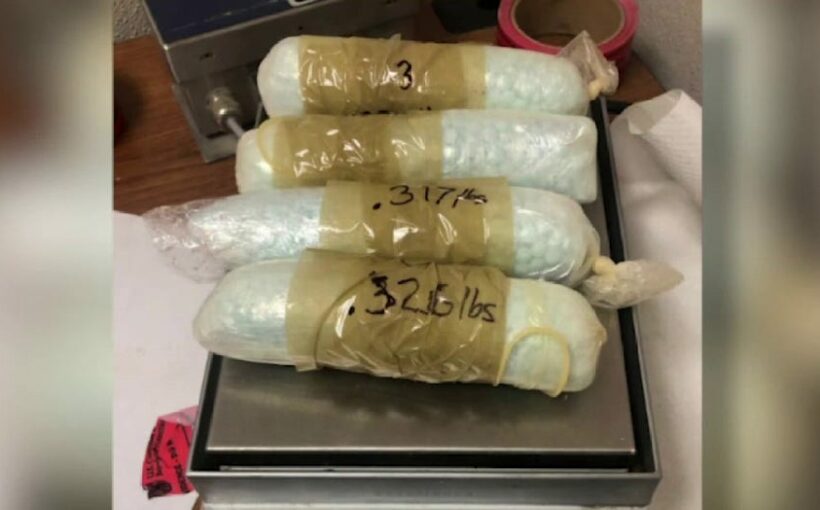Fatal overdoses surge to record high in America
‘The Five’ reacts to 226% spike in pounds of fentanyl seized this year since 2018
The Biden administration is releasing a comprehensive Overdose Prevention Strategy focusing on primary prevention, harm reduction, evidence-based treatment and recovery support to combat what officials call an evolving “public health crisis.”
Health and Human Services Secretary Xavier Becerra on Wednesday is set to detail the administration’s efforts to increase access to care and services for individuals with substance use disorders and their families. Unlike previous strategies which focused solely on opioids, officials say this strategy focuses on “the multiple substances responsible for overdose and the diverse treatment approaches needed to address them.”
Officials said the overdose crisis is driven not only by synthetic opioids and illicitly manufactured fentanyl, but also psychostimulants, like methamphetamine.
“Too many families have lost loved ones to drug overdoses. We are facing a public health crisis that requires a comprehensive approach to preventing and reducing overdose incidents,” Becerra said, adding that the Biden administration “is committed to preventing overdose deaths in every way possible and doing so in a compassionate and inclusive way.”
The strategy, according to officials, recognizes that addressing the overdose crisis requires a “multifaceted and integrated approach, spanning public health, health care, human services and many other sectors.”
Officials say the new strategy “reflects the Biden-Harris Administration principles of equity for underserved populations, reducing stigma, and evidence-based policy.”
The strategy, according to HHS, “recognizes that the full continuum of integrated care and services are needed to help people prevent, treat, and recover from substance use disorders, and emphasizes the Department’s commitment to helping historically underserved populations.”
Meanwhile, the strategy also “breaks new ground,” HHS said, by providing “coordinated, federal support” to the harm reduction and recovery support arenas, which, in the past, have been supported by grassroots efforts.
Under the new strategy, HHS is set to begin providing funding for syringe exchange programs and fentanyl test strips, which would show a drug user if the substance is laced with fentanyl. Officials said certain federal grant funds will be used to purchase fentanyl test strips, which they say can be used to encourage users to take additional precautions when using drugs.
An HHS official told Fox News that, despite negative perceptions around fentanyl test strips, research has shown that drug users provided with test strips reported that “receiving a positive test result was significantly associated with a positive change in overdose risk behavior (such as using more slowly, using less, throwing the batch away, or using with another person around).” The official said that the “overwhelming evidence supports the safety and ease” of fentanyl test strips use in communities and in outpatient and inpatient treatment settings.
The new strategy, according to the official, recognizes that stopping drug use is a “journey” for many, saying it “makes clear that the administration is committed to meeting people where they are.”
“It is not a war on drugs,” the official said. “This is trying to help people get through this, and, in a compassionate way, acknowledging the enormous number of people in underserved populations that have not been able to access services.”
Meanwhile, commenting on the new strategy, U.S. Surgeon General Vice Admiral Vivek Murthy said the U.S. has “treated addiction as a moral failure — an approach that has left people without sufficient support, led to tragically high numbers of overdoses, and hurt families, friendships, and entire communities.”
“The new overdose prevention strategy is a powerful step toward addressing the overdose crisis and investing in a system that approaches addiction not as a character flaw, but as a chronic condition that must be met with skill, compassion, and urgency,” Murthy said.
Under the American Rescue Plan, more than $2 billion was appropriated to enable HHS’ Substance Abuse and Mental Health Services Administration (SAMHSA) and the Health Resources and Services Administration (HRSA) to expand access to “vital services” that support the implementation of the new strategy.
According to HHS, President Biden’s Fiscal Year 2022 proposed budget for HHS on drug-related programs and initiatives totals $11.2 billion across the agency — $3.9 billion more than in FY 2021, and includes funding to expand access to substance use prevention, treatment, harm reduction, and recovery support services. The proposed budget also provides funding to bolster the nation’s behavioral health infrastructure. Notably, SAMHSA’s FY 2022 budget request includes $3.5 billion for the Substance Abuse Prevention and Treatment Block Grant.
Biden’s proposed budget request also included, for the first time, a 10 % “set-aside for recovery support services.” At HRSA, $1.1 billion in mandatory and discretionary funding is requested in FY 2022 to support the substance use disorder responses in community health centers, invest in the National Health Service Corps, develop the behavioral workforce, and expand substance use disorder response in rural America.
Source: Read Full Article



